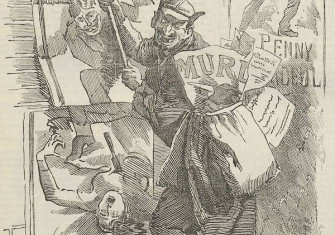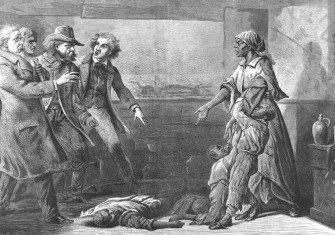Birth of a Swiss Serial Killer
Marie Jeanneret was born on 13 January 1836 in Switzerland. By the time she was brought to justice, she had attempted to murder at least 30 people.

It wasn’t until June 1868, when 24-year-old Marie-Catherine Fritzgès fell ill at the Pension Desarzens in Geneva, that the authorities acted. It was much too late.
Fritzgès had been befriended by a fellow guest, Marie Jeanneret, a nurse. Jeanneret poisoned her with atropine, a derivative of belladonna, deadly in large doses. Fritzgès was lucky. She lived. Others – at least six over the previous nine months – had died. Jeanneret likely tried to kill around 30 people.
Jeanneret was born at Locle, in the Swiss canton of Neuchâtel, on 13 January 1836. Orphaned at a young age, she became obsessed with her own health. Doctors, whom she pestered, thought her symptoms largely imaginary. One noted her preference for treatments over remedies – especially if they brought her pain; she demanded that he burn her back with a red-hot iron. It wasn’t a new procedure to her; she had welts up and down her spine to prove it.
Her parents left her enough money to support herself –enough to let her offer her nursing services without a fee. She scorned doctors, though. ‘The doctor says that [they] will get better’, she said of one of her victims: ‘Well I tell you she will not … These doctors are fools.’ She usually gave atropine and morphine together, each masking the effects of the other, making diagnosis harder.
At her trial in 1868 she said she believed she would make the patients better. ‘But when you saw the results of your treatments, why did you continue to give them?’ the judge asked. She didn’t have a good answer to that.
The youngest victim was 11-year-old Jenny-Julie Juvet. Jeanneret had given her poisoned bonbons; she called them ‘princesses’. The oldest was 72-year-old Louise-Marie Lenoir. Jeanneret loved her patients, she said; it seemed the only common factor.
She freely admitted the killings. Those were not crimes, she said. Just mistakes. She was sentenced to 20 years in prison. The jury’s unwillingness to apply the death penalty led the authorities in Geneva to withdraw it altogether. In a way, Jeanneret saved lives too.






